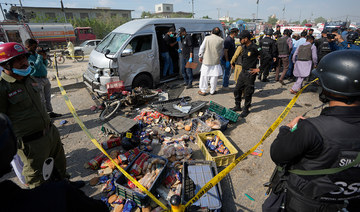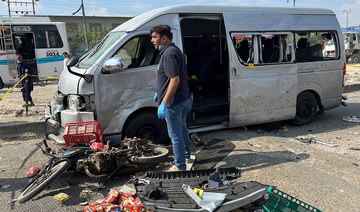LAHORE: Established by Punjab government, the National History Museum (NHM) at Greater Iqbal Park has preserved the country’s history not only since its creation but also throws light on the struggle of Muslims ruling the sub-continent for centuries.
The mega project was envisaged as a part of the park to educate the new generation of Pakistan about the struggle of their forefathers for a separate country.
The Museum narrates the tale from the independence movement and the picture of first few years of a new born state. The historic events, important statistics and speeches of the leaders of the movement have been displayed at the digital library of the National History Museum while another section of the museum displays pictures and mementos from the British era.
The era from 1940 to 1960, the Pakistan Movement and its inception and the years after have been displayed as a timeline. Similarly, another part of the museum depicts the Lahore Resolution, Pakistan's founding father Muhammad Ali Jinnah's videos, speeches and scenes from migration of Muslims from India to Pakistan at the time of partition in 1947.
“I have crossed eighty fifth year of my age and came here with my grandson. For me it is like moving with history as every wall, every corner introduces us to the struggle of our elders. The pain they suffered, the price they paid for the peace of their people,” Nisha Begum, a senior citizen living in Lahore, told Arab News.
A section at the NHM showcases stories with the help of archives -- newspaper articles, personal letters and firsthand accounts.
This section also shows the scenes of great migration in the country's history as in August 1947, Great Briton left the subcontinent after ruling for 90 years, dividing United India into two separate countries. Millions of Muslims began their journey to West and East Pakistan (presently Bangladesh) while millions of Hindus and Sikhs headed in the opposite direction.
Unprecedented violence with Hindus and Sikhs on one side and Muslims on the other, was witnessed. “The carnage was very intense, with massacres, arson, forced conversions, mass abductions, and savage sexual violence. Some seventy-five thousand women were raped, and many of them were then disfigured or dismembered," according to The New Yorker edition of June 22, 2015.
“I have seen those black days with my eyes. I was a little child at that time. I saw trains arriving with dead bodies. The Muslim sacrificed their lives for a peaceful land but the politicians wasted the struggle. The looters have taken control and the noble lost their dignity,” another senior citizen, Salahud Din, 82, told Arab News.
However, some historians believe that truth was kept from the people in India and Pakistan with self-narrated literature disseminated to further agendas and brain wash people.
“Partition had resulted in the biggest forced migration in the history of mankind and as many as 14 million people, including 10 million from Punjab, were forcefully evicted. Although historians have failed to narrate the violence, but some masterpieces of Urdu literature have highlighted the women’s experiences during Partition,” Dr. Ali Usman Qasmi, historian and Chronologist said during a book launching ceremony at the University of Lahore.
However, the veterans see the 72-year journey of Pakistan with disappointment and hope at the same time.
“The 72-year journey of Pakistan is very unique. A few years after its creation, the country came into the clutches of army dictators and we failed to build a strong system as per our needs. Dictators used the country for personnel gains depriving the people of their legitimate rights,” opined veteran journalist, Chaudhry Khadim Hussain, touching 84 years of age. “I witnessed the creation of Pakistan. People sacrificed their lives, properties and relations in hopes for good but successive military interventions destroyed everything. Even a popular leader like Zulfikar Ali Bhutto failed to complete his agenda,” Hussain added.
Retired General Zia-ud-Din Khawaja had a different point of view. “Despite having nuclear and missile capacity Pakistan never put the world in danger. It always behaved sensibly. Pakistan army played important role not only in the development of the country but also contributed for peace at international level,” Gen. Khawaja said. “Pakistan was created in the name of Islam but unjustified distribution of resources among different segments of society kept the poor away from the blessings,” he added.
Veteran politician Raja Zafrul Haq, who took part in the Pakistan movement, told Arab News that Pakistan was a story of great successes and misfortunes at the same time. The civil governments developed the infrastructure of the country, made her a nuclear power, strengthened its defense but look at what we did with the elected prime ministers whether it was Bhutto or Nawaz Sharif.
“Pakistan significantly lost credibility in the world because of a weak democratic system," said Haq.
Pakistan at 72: a story of success and misfortunes
Pakistan at 72: a story of success and misfortunes
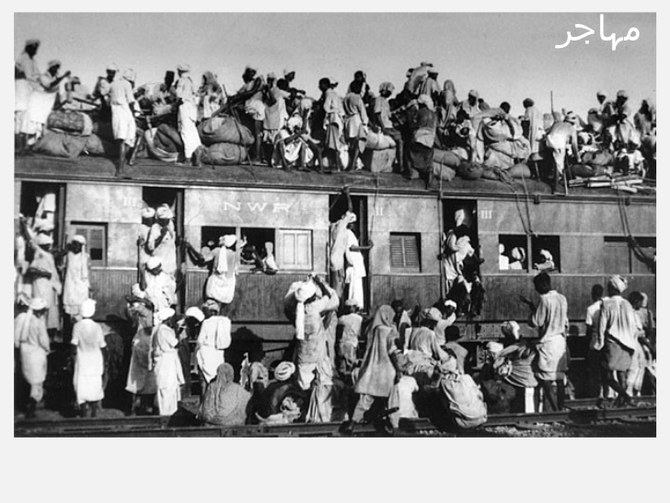
- National History Museum narrates the tale of the country's inception and struggle
- Successive martial laws made Pakistan lose direction, veteran journalist says
Punjab seeks suspension of cellular services during Sunday’s by-polls in 13 cities
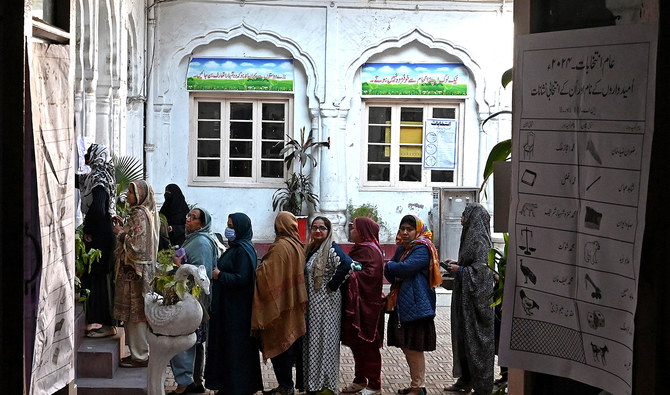
- By-elections will be held on 21 national, provincial seats in Punjab, Khyber Pakhtunkhwa and Balochistan provinces
- Pakistan’s national polls in Feb. were marred by mobile service shutdown, result delays, leading to rigging allegations
ISLAMABAD: The provincial government in Pakistan’s eastern Punjab province has requested for the suspension of mobile phone services in 13 cities during the by-elections on Sunday, according to the Punjab home department.
By-elections on 21 national and provincial seats in Punjab, Khyber Pakhtunkhwa (KP) and Balochistan provinces are scheduled to be held on April 21. Electioneering in these constituencies came to an end at midnight on Friday, according to a deadline set by the Election Commission of Pakistan (ECP).
In a letter to the interior ministry, the Punjab government requested suspension of mobile phone services in Talagang, Chakwal, Kallar Kahar, Gujrat, Ali Pur Chatha, Zafarwal, Bhakkar, Kasur, Sheikhupura, Lahore, Sadiqabad, Kot Chutta and Dera Ghazi Khan.
“I have been directed to request that mobile Internet services may kindly be suspended on 21st April, 2024 for maintaining law and order situation and to avoid any untoward incident [in the aforementioned areas],” a section office of the Punjab home department wrote in his letter to the interior ministry.
The seats, which are up for grabs in Sunday’s by-polls, were left vacant due to postponement of polls or were vacated by lawmakers, who won multiple seats, in national election in February.
The request by the Punjab home department comes amid expectations of a fierce competition between candidates backed by jailed former prime minister Imran Khan’s Pakistan Tehreek-e-Insaf (PTI) party and rival political groups.
Pakistan’s national election on Feb. 8 was marred by a mobile service shutdown and unusually delayed results, leading to accusations that the vote was rigged and drawing concern from rights groups and foreign governments.
Several political parties, including Khan’s PTI, and candidates had held protests and challenged many of the results before the ECP. However, the outgoing caretaker government and the ECP had denied allegations of any systematic rigging of the vote.
Police say attack on Japanese nationals in Karachi can be a case of ‘mistaken identity’
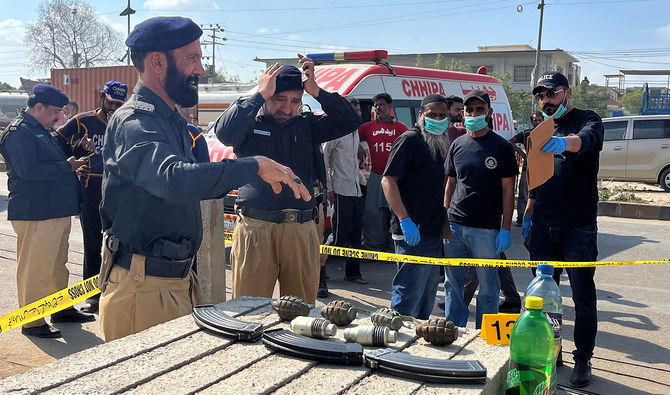
- In the past, Baloch separatists have claimed responsibility for attacks on Chinese nationals in the Pakistani port city
- However, Friday’s suicide attack on a van was the first incident in Pakistan that appeared to target Japanese nationals
KARACHI: The suicide attack on Japanese nationals in Pakistan’s southern city of Karachi could be a case of “mistaken identity” as no group has claimed responsibility for it, a senior police officer said on Saturday.
The Japanese nationals were traveling on Friday in a Hiace van to an industrial area, where they worked at Pak Suzuki Motors, when the suicide bomber detonated his explosive-laden vest near the van, according to police.
A police team escorting the vehicle returned fire after coming under attack, killing an accomplice of the suicide bomber. Officials said one of the attackers was identified as Sohail Ahmed, a resident of Panjgur district in the southwestern Balochistan province.
However, Ghulam Nabi Memon, the provincial police chief, said no militant group had accepted responsibility for the attack and it seemed they didn’t intend to attack the Japanese.
“For now, it seems to us to be a case of mistaken identity,” Memon told Arab News. “We are reviewing security protocols. The police and intelligence agencies are making efforts [to arrest the perpetrators].”
In the past, Baloch separatists have claimed responsibility for attacks on Chinese nationals in the Pakistani port city. However, this is the first time that the Japanese have come under such an attack.
A police officer, who spoke on the condition of anonymity, told Arab News that police suspected the attack was carried out by the outlawed Balochistan Liberation Army (BLA). The group has claimed several attacks, including the ones on the Chinese consulate in Karachi, Karachi Stock Exchange, and a suicide attack on Chinese teachers at Karachi University.
A BLA spokesperson didn’t respond to Arab News request for a comment on the attack.
Hours after the attack, Baloch activists shared videos on X, claiming raids were conducted on the homes of their supporters in Karachi.
A police officer, who requested anonymity, confirmed that raids were made to arrest the perpetrators and facilitators of the incident, but declined to share if any arrests were made.
“All I can share is that we are going in the right direction and an important breakthrough will be made soon,” he said.
On Friday, a police handout said the provincial police chief had chaired a high-level meeting, wherein he emphasized the need to establish a dedicated unit for the protection of Chinese nationals.
The police chief also stressed strict implementation of the standard operation procedures (SOPs) regarding the security of foreign delegates and regular issuance of security adviseries by authorities.
“Further discussions centered on enhancing security measures for all Chinese residents, experts, staff, and other foreign guests/delegates in Sindh,” the handout read.
In recent weeks, militants have targeted Chinese nationals working in Pakistan on projects relating to the China-Pakistan Economic Corridor (CPEC), a major segment of Beijing’s Belt and Road infrastructure initiative, which will connect China to the Arabian Sea and help Islamabad expand and modernize its economy through a network of roads, railways, pipelines and ports in Pakistan.
In March, five Chinese nationals and their Pakistani driver were killed in northwest Pakistan, when a suicide bomber rammed his explosive-laden car into the bus carrying them to Dasu Dam, the biggest hydropower project in Pakistan, where they worked.
Saudi cadet bags gold medal as fresh batch graduates from Pakistan Military Academy
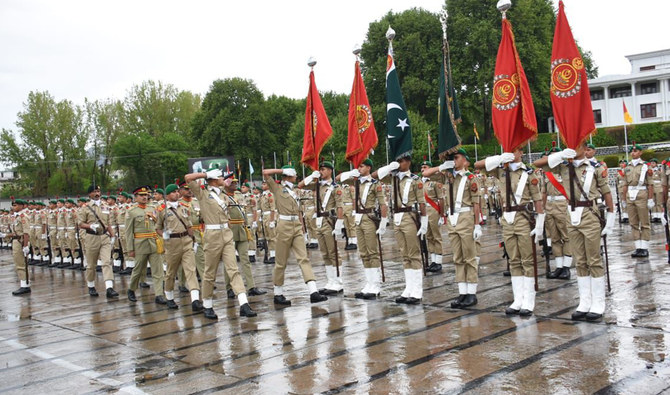
- Forty-nine cadets from “friendly countries” graduate from Pakistan Military Academy in Kakul, says army
- The PMA provides initial training to Pakistani cadets and recruits from friendly countries such as Saudi Arabia
ISLAMABAD: The Pakistan Army awarded the Chairman Joint Chiefs of Staff Committee Overseas Gold Medal to a Saudi cadet in recognition of his performance, as a fresh batch of local and international cadets graduated from the Pakistan Military Academy (PMA) on Saturday, the army’s media wing said.
General Sahir Shamshad Mirza, chairman joint chiefs of staff committee, was the chief guest at the passing out parade of the 149th PMA Long Course at the academy in Kakul. General Metin Gürak, the chief of the Turkish general staff who is on an official visit to Pakistan, was the guest of honor at the ceremony.
Gen. Mirza reviewed and spoke to cadets at the parade while General Gürak presented the awards to the distinguished cadets, the Inter-Services Public Relations (ISPR) said.
“The Chairman Joint Chiefs of Staff Committee Overseas Gold Medal was awarded to Friendly Country Senior Under Officer Fahad Bin Aqil Al Towarqi Al Fallaj from Kingdom of Saudi Arabia,” the ISPR said.
The army’s media wing said 49 cadets from “friendly countries” also graduated at the ceremony. The coveted Sword of Honour was awarded to Academy Senior Under Officer Muhammad Nauman Abdullah.
The President’s Gold medal was awarded to Company Senior Under Officer Muhammad Abdullah Javed of the 149th PMA Long Course, the army’s media wing said.
“Since its inception, PMA has remained the cradle of leadership and center of excellence for cadets joining the premier institution of Army,” Gen. Mirza was quoted as saying by the ISPR.
“Over the years, PMA has also trained scores of foreign cadets whose brilliant performance in their respective Armies stands testament to the professional ethos of PMA.”
The PMA in Kakul, Abbottabad, provides initial training to Pakistan Army cadets and recruits from friendly countries, including Saudi Arabia, the Middle East and elsewhere in the world.
Pakistan and Saudi Arabia enjoy fraternal relations, leading the two countries to cooperate in trade, defense and other vital sectors.
The Kingdom is home to over 2.7 million Pakistani expatriates and serves as the cash-strapped South Asian country’s largest source of remittances.
Pakistan to hold by-elections on 21 national, provincial assembly seats on Sunday
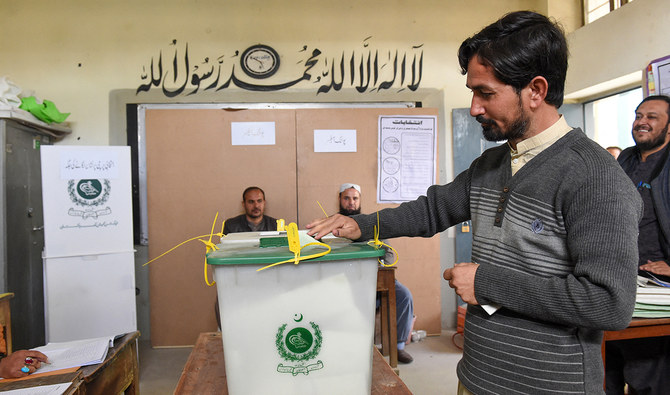
- Polling will be held on seats vacated by candidates or where polling was postponed due to various reasons
- Polling will take place on seats vacated by PM Shehbaz Sharif, Chief Ministers Maryam Nawaz and Ali Amin Gandapur
ISLAMABAD: Pakistan will conduct by-elections on 21 national and provincial seats on Sunday, state-run media reported on Saturday, marking the country’s first major electoral exercise since the contentious general elections of Feb. 8.
The by-elections would be held on the national and provincial assembly seats that were vacated by candidates following the Feb. 8 elections.
Polling on Sunday is scheduled to be held on five National Assembly seats, 12 Punjab Assembly seats, two Khyber Pakhtunkhwa (KP) Assembly seats and two Balochistan Assembly seats.
“Polling will start at 8:00 in the morning and it will continue till 5:00 p.m. without any break,” Radio Pakistan said.
Polling for NA-8 Bajaur and PK-22 Bajaur were postponed on Feb. 8 after the murder of a candidate, Rehan Zeb Khan. Polling will also be held in NA-44 Dera Ismail Khan, where the National Assembly seat was vacated by Ali Amin Gandapur, who retained his provisional assembly seat to become KP’s chief minister.
Similarly, Punjab Chief Minister Maryam Nawaz Sharif vacated her NA-119 seat in Pakistan’s eastern city of Lahore, choosing instead to keep the PP-159 constituency that she also won.
Prime Minister Shehbaz Sharif won elections on two provincial and National Assembly seats. He left the NA-132 Kasur and Lahore’s PP-158 and PP-164 seats vacant, preferring to retain the NA-123 Lahore constituency.
Pakistan Peoples Party (PPP) Chairman Bilawal Bhutto-Zardari won two National Assembly seats. He retained the NA-194 Larkana constituency, leaving the NA-196 seat in Qamber Shahdadkot vacant.
Pakistan’s Feb. 8 elections were marred by delayed results, a countrywide shutdown of mobile phone services and rigging allegations. Jailed former prime minister Imran Khan’s Pakistan Tehreek-e-Insaf (PTI) accused Pakistan’s election regulator of manipulating the results of the elections, claiming in reality it had won over 180 National Assembly seats.
The Election Commission of Pakistan (ECP) rejected the PTI’s allegations, saying polling results were delayed due to the shutdown of mobile phone services countrywide. Pakistan’s caretaker administration had said the mobile services were suspended due to security reasons, rejecting rigging allegations by Khan’s party.
Independent candidates backed by Khan secured the highest number of seats in the National Assembly. However, the Pakistan Muslim League-Nawaz (PML-N) emerged as the largest party in the National Assembly, as a court decision prevented Khan-backed candidates from contesting polls with the PTI’s symbol.
Death toll from heavy rains in northwestern Pakistan rises to 46
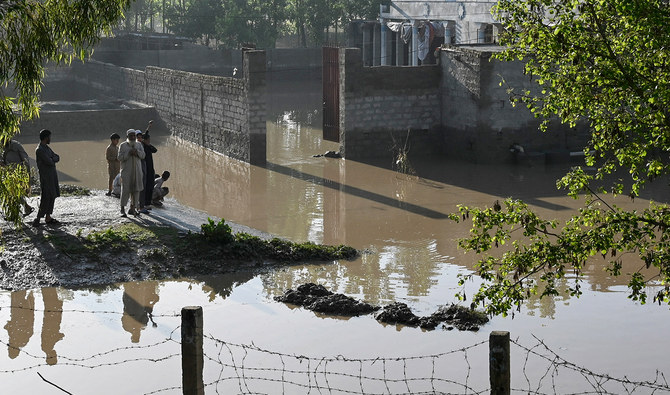
- Forty-six casualties include 25 children, 12 men and nine women, says Provincial Disaster Management Authority
- Heavy rains and lightning strikes have killed at least 36 people in Pakistan’s Punjab and Balochistan provinces since April 12
Peshawar: The death toll from rain-related incidents in northwestern Pakistan rose to 46 on Saturday, the Provincial Disaster Management Authority (PDMA) said on Saturday, while the number of injured climbed to 60.
“As many as 25 children, 12 men and nine women are among those who died in rain-related incidents during the last eight days,” the report said about heavy rains that began in the province last Friday, April 12.
The number of injured has risen to 60, which includes 33 men, 16 children and 11 women, the PDMA said.
The current spell of showers is likely to continue till April 21, the PDMA said this week. The provincial government has released Rs110 million to be distributed among the affected families and dispatched aid, including tents, kitchen kits, blankets, hygiene kits, mosquito nets and mattresses, to the affected areas, according to the authority.
As the rains are expected to continue intermittently until April 21, the PDMA said it had already a letter to all district administrations to remain alert and take precautionary measures.
In the southwestern Balochistan province, heavy rains have killed 15 people since Friday and triggered flash floods in several areas, according to provincial authorities.
Balochistan Chief Minister Sarfaraz Bugti said climate change had become a “challenge” for the provincial government.
“Current rains are unusual which were never reported in a thousand years,” he told reporters on Friday. “The government has been helping the masses with available resources and our teams have reached all districts to help the people affected by rains and floods.”
Pakistan has received heavy rains in the last three weeks that have triggered landslides and flash floods in several parts of the South Asian country.
The eastern province of Punjab has reported 21 lighting- and roof collapse-related deaths, while Balochistan, in the country’s southwest, reported 10 deaths as authorities declared a state of emergency following flash floods.
In 2022, downpours swelled rivers and at one point flooded a third of Pakistan, killing 1,739 people. The floods also caused $30 billion in damages, from which Pakistan is still trying to rebuild.









